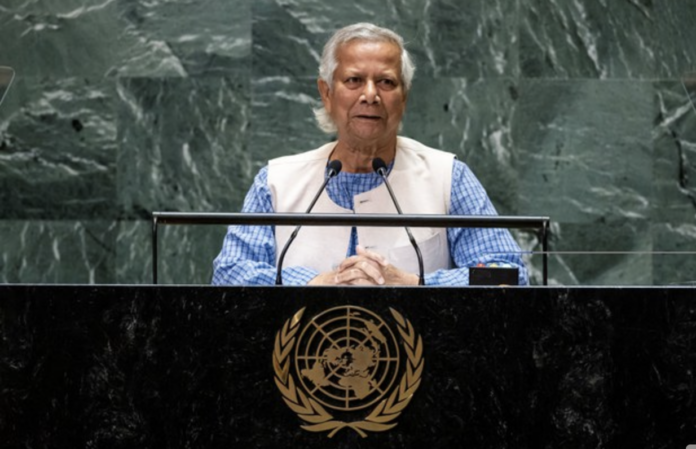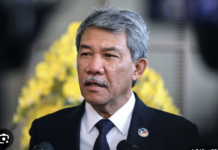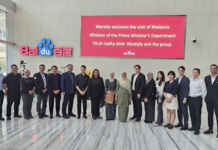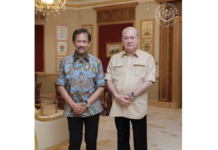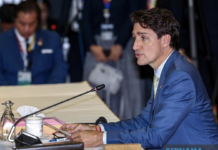NEW YORK, Sept 28 – Chief Adviser Prof Muhammad Yunus has urged the international community to engage with a new Bangladesh that aims to ensure freedom and democracy for all, The Daily Star reported.
The power of Bangladesh’s ordinary people, especially the youth, presented the nation with an opportunity to overhaul the system and end discrimination, Prof Yunus said, addressing the general debate of the 79th session of the UN General Assembly in New York.
“I would, therefore, call on the international community to continue and deepen engagements with Bangladesh in meeting our people’s quest for democracy, rule of law, equality, and prosperity, so that we can emerge as a just and inclusive democratic society,” he said.
This is the first time Prof Yunus is attending an international event as the head of government, meeting dozens of global leaders like US President Joe Biden, Canadian Prime Minister Justin Trudeau, UN Secretary-General Anthony Guterres, heads of World Bank, IMF, UNHCR, ILO, and the European Union.
“That collective resolve [which led to the ouster of Sheikh Hasina] should define the Bangladesh of the future and place our nation as a responsive and responsible state in the comity of nations,” he said in his speech.
Prof Yunus said the people who toppled the autocratic regime in Bangladesh through a movement were long forgotten in politics and development. They dreamt of a just, inclusive and functioning democracy.
According to an estimate, over eight hundred people were martyred during the movement, he said.
“Bangladesh was born because of her people’s profound belief in liberalism, pluralism and secularism. Decades later, our Generation Z is making us re-visit and re-imagine the very values that our people stood for back in 1971. As our people also did in 1952, to defend our mother language, Bangla.”
Prof Yunus said small farmers and artisanal livelihood-holders face great risks in Bangladesh.
“As I speak, over five million people witnessed the most devastating flood in their living memory in eastern Bangladesh.
“I would hence urge channelling robust resources for climate adaptation in the climate-vulnerable countries like Bangladesh. It is crucial to operationalise loss and damage funds by leveraging innovative solutions and additional finance.”




